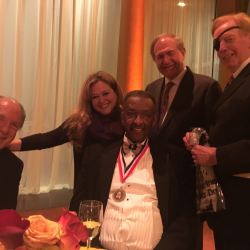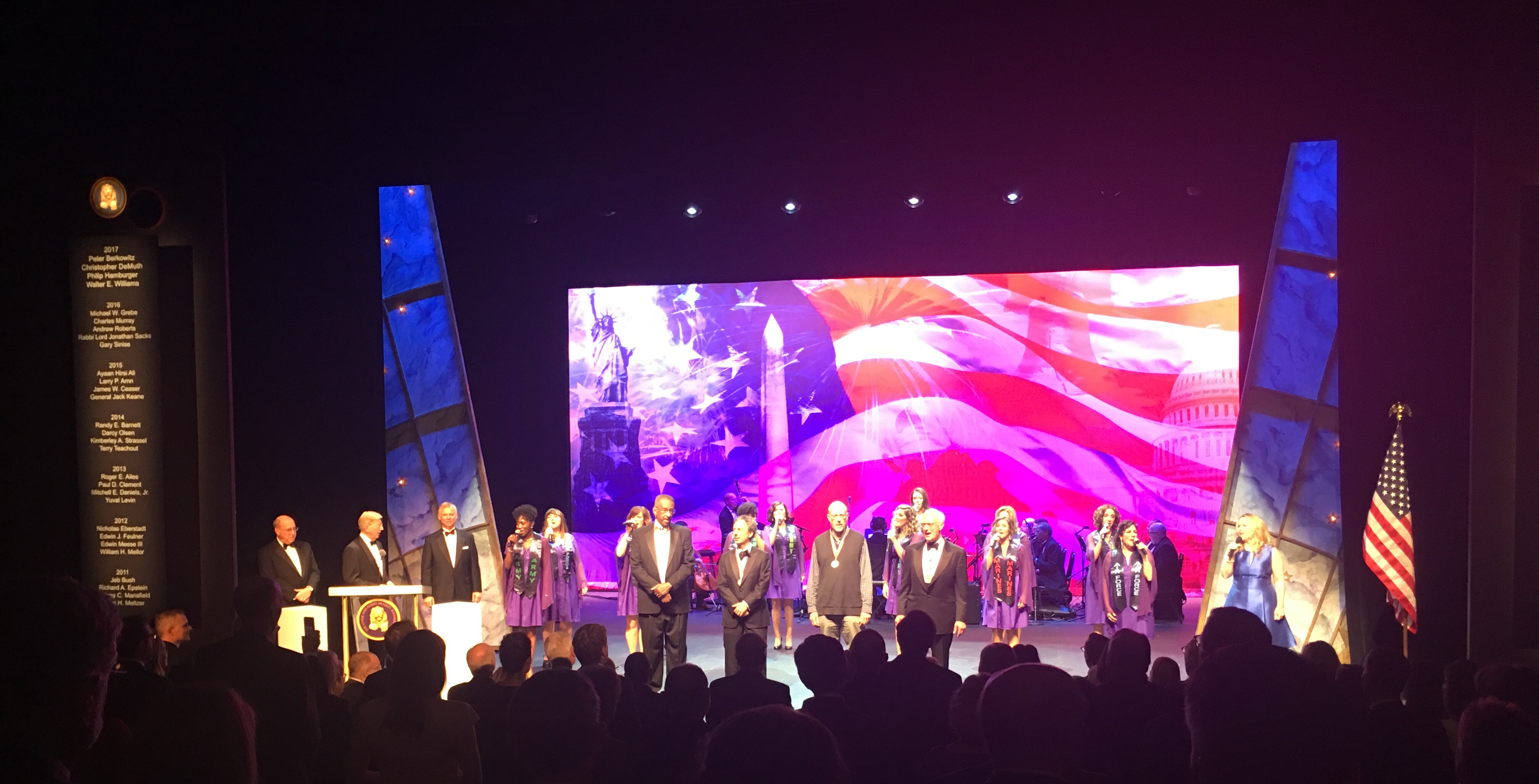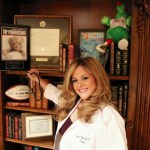
I was honored to travel to Washington, DC to attend last evening’s 2017 Bradley Prizes awarded by The Lynde and Harry Bradley Foundation to Dr. Walter E. Williams (John M. Olin Distinguished Professor of Economics at George Mason University), Dr. Peter Berkowitz (Political scientist and Tad and Diane Taube Senior Fellow at Stanford University’s Hoover Institution), Professor Philip Hamburger (Maurice and Hilda Friedman Professor of Law at Columbia Law School) and Mr. Christopher DeMuth (Distinguished Fellow at the Hudson Institute).

This significant achievement is intended to “formally recognize individuals of extraordinary talent and dedication who have made contributions of excellence in areas consistent with The Lynde and Harry Bradley Foundation’s mission. Up to four Prizes of $250,000 each are awarded annually to innovative thinkers and practitioners whose achievements strengthen the legacy of the Bradley brothers and the ideas to which they were committed.”
The Foundation’s mission reflects the commitment of the Bradley Brothers:
"The Bradley brothers were committed to preserving and defending the tradition of free representative government and private enterprise that has enabled the American nation and, in a larger sense, the entire Western world to flourish intellectually and economically. The Bradleys believed that the good society is a free society. The Lynde and Harry Bradley Foundation is likewise devoted to strengthening American democratic capitalism and the institutions, principles, and values that sustain and nurture it. Its programs support limited, competent government; a dynamic marketplace for economic, intellectual, and cultural activity; and a vigorous defense, at home and abroad, of American ideas and institutions. In addition, recognizing that responsible self-government depends on enlightened citizens and informed public opinion, the Foundation supports scholarly studies and academic achievement.”
-- From the Program Guidelines approved by the Board of Directors, November 22, 1985
The Awards Ceremony took place at Sidney Harman Hall where George Will — a member of the Bradley Prizes Selection Committee and past recipient — emceed the event. As expected, his introductions were replete with endless wit and mastery of historical recall along with a genuine admiration for the profound work and vast accomplishments of the night’s honorees. I was fortunate to capture a brief, but meaningful few moments in discussion with him after the ceremony about my alma mater, Yale University, and recent college campus activity.

Richard W. Graber, President and CEO of the Lynde and Harry Bradley Foundation, spoke with tremendous pride about the organization’s highly dedicated efforts. He conveyed such enthusiasm and great respect when referencing each of the evening’s awardees. Well-produced, inspiring and informative videos of compiled interviews by each of the Bradley prize-winner’s colleagues accompanied the speeches and introductions.
It was lovely to meet him during the gala reception along with Cleta Mitchell also on the Board of Directors of the Lynde and Harry Bradley Foundation. This continuation of the festivities took place at the National Building Museum.
Upon arrival, I met Donna Wiesner Keene and her husband, David Keene (Past President, Board & Executive Council Member for the National Rifle Association of America). We addressed my article “Physician ‘Gun-Gag’ Law: The Politics and The Medicine” and respectful, informative conversation ensued.
Discussions about medicine, its practice and the state of healthcare abounded and I very much enjoyed the diverse and invaluable exchanges I had with every person I encountered. It was an honor to speak with the evening’s prize winners, in particular Walter Williams (pictured in the article's accompanying photo). Richard Rahn, Governor Jim Gilmore, Peter Berkowitz, Christopher DeMuth and Charles Murray were among the many people with whom I engaged in insightful dialogues.

